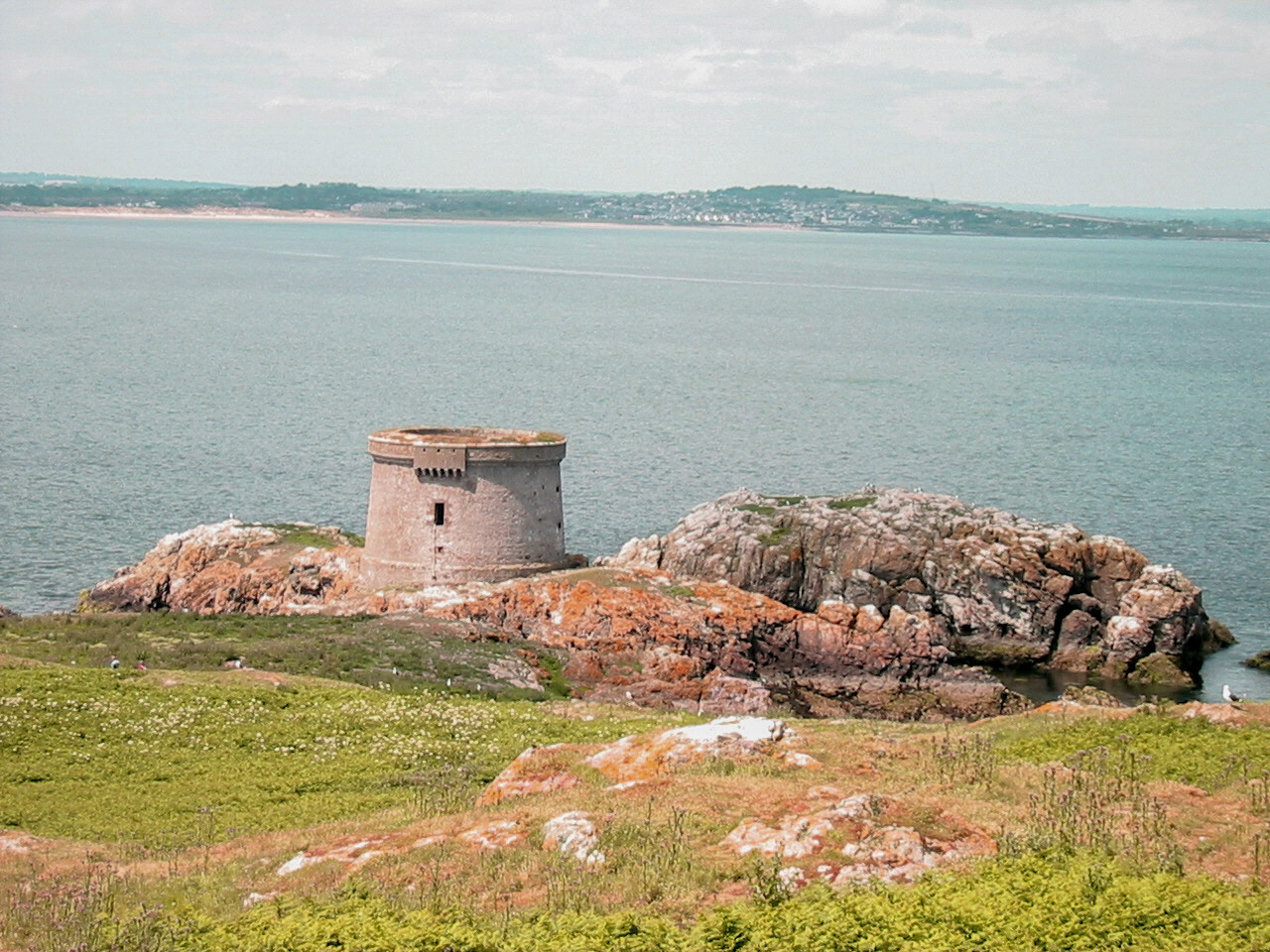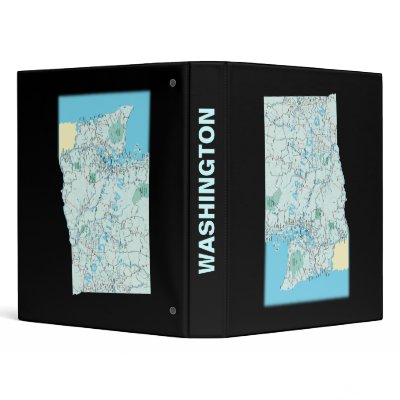Blue Highways: A Radar Station in Western North Dakota
Unfolding the Map
 I'm making another educated guess for this post as to where William Least Heat-Moon (LHM) found the radar tower in North Dakota. How? I examined Google Earth, found a likely "small flourish of hills" with a "fine, clear lake" beneath them. I didn't see evidence of a radar tower, so either it was dismantled or because of national security Google airbrushed it out of the satellite photo. I am going to look at the idea of early warning defense (on multiple levels) by first writing about Martello towers, which LHM mentions in his quote below. If you want an early warning about where we are located, use your inner radar to locate the map.
I'm making another educated guess for this post as to where William Least Heat-Moon (LHM) found the radar tower in North Dakota. How? I examined Google Earth, found a likely "small flourish of hills" with a "fine, clear lake" beneath them. I didn't see evidence of a radar tower, so either it was dismantled or because of national security Google airbrushed it out of the satellite photo. I am going to look at the idea of early warning defense (on multiple levels) by first writing about Martello towers, which LHM mentions in his quote below. If you want an early warning about where we are located, use your inner radar to locate the map.
Book Quote
"In a small flourish of hills, the last I was to see for hundreds of miles, on an upthrusted lump sat a cube of concrete with an Air Force radar antenna sweeping the long horizon for untoward blips. A Martello tower of the twentieth century. Below the installation, in the Ice Age land, lay a fine, clear lake. Fingerlings whisked the marsh weed, coots twittered on the surface, and at bankside a muskrat munched greens. It seemed as if I were standing between two worlds. But they were one: a few permutations of life going on about themselves, each thing trying to continue its way."
Blue Highways: Part 7, Chapter 7
 This is just a stock photo of a radar system. Photo at Al Arabiya. Click on photo to go to host site.
This is just a stock photo of a radar system. Photo at Al Arabiya. Click on photo to go to host site.
 And this is an image of a Martello tower in Ireland. Photo at Wikipedia. Click on photo to go to host site.
And this is an image of a Martello tower in Ireland. Photo at Wikipedia. Click on photo to go to host site.
A Radar Station in Western North Dakota
Martello towers. In entering North Dakota, LHM stops after seeing a radar antenna and calls it a Martello tower of the twentieth century. Of course, he is writing in the late 1970s or early 1980s as the
Cold War is still raging, and there is still an off chance that Soviet ballistic missiles could appear as blips on the radar screen in a surprise attack. You might or might not know that North Dakota, along with Wyoming and Montana, houses a number of active-duty missile silos which puts those states on the front lines if nuclear war were to ever occur. But what really interested me was the term for the radar station as a Martello tower. I didn't understand the reference, and one of the things I find really exciting about reading is running across a term that I don't know and then trying to discover what it means.
So here's the story about the Martello towers. They were invented in the mid-1500s at Mortella Point in Corsica. A small, round tower with very thick walls, they were built to serve as a lookout for North African pirates. The towers initially served a lookout purpose. They were garrisoned with a watchman who lit a fire at the top of the tower to signal when pirates were spotted. This original purpose of the Mortella-type tower (it's name was later misspelled and changed to the Martello tower) is what LHM is referencing when he compares the radar station to the towers. When I think of this use of the towers, my inner geek is reminded of The Lord of the Rings, when the signal towers are lit to call the Rohirrim to the aid and defense of Gondor.
Later, the Genoese expanded the use of the tower, turning them into small forts that could not only be used for lookouts, but also for defense. The towers were tough and armed with cannon. The British attacked the Mortella tower in 1794 with two warships and were unable to reduce it despite subjecting it to two days of pounding from the heavy guns of their ships (the tower eventually fell to a land-based force attacking from the rear). The impressed British modified the tower design and built a number of them along the coasts of England, Scotland and Ireland to provide defense against a potential threat from Napoleon in France. France itself built a number of Martello-style towers and again used them for communication and warning through the Chappe Telegraph system (an optical telegraph).
Eventually, the United States built its own Martello towers which can be seen in places like New Hampshire, Georgia, Louisiana, South Carolina, and New York City. The Martello tower is also part of the insignia of a U.S. army infantry regiment.
In the use of communication, it is easy to see how the early use of the Martello tower can serve as a metaphor for today's long-range missile early-warning radar system. Perhaps, if the combination of early-warning radar is combined with the instantaneous response of the Minuteman missiles in silos nearby, one can also extend the metaphor to the later use of the Martello towers as defense systems as well. A lot of thought, bolstered by science and engineering, goes into these defense systems regardless of whether they are constructed of stone, morter and wood or if they are constructed of the highest-tech materials. The idea is simple, provide early warning and defend the heartland.
I also think, however, of the defenses that are more close to home. Martello towers can be metaphors for the defenses we put up in our own lives. Security systems guard our businesses, vehicles and homes, providing warnings and defenses against fire, carbon monoxide, radon, and intruders. Take a home alarm system. An intruder breaks in, the alarm goes off, a signal is sent offsite to a center which calls police, and hopefully police arrive in time to apprehend the intruder.
How about even closer to home - our own personal warning systems and defenses? These might be friends or loved-ones watching out for us, our so-called "wing" men or women who might signal that we should stay away from that good looking but unstable or unsavory character. It might be our own consciences or inner-selves raising red flags about situations that we find ourselves in. In response we may shut down, go into avoidance or, in desperate situations, launch countermeasures to protect ourselves.
No matter how far we extend the metaphor, we can find Martello towers that we've erected in all parts of our lives if we look. And regardless of the level of analysis, they can be more or less effective depending on the situation. Often our towers will give us plenty of warning. Sometimes our towers will remain strong, holding off the attack. We'll occasionally be surprised from behind where our defenses are weak. Every so often a bombardment from something or someone will cause us some damage but at the end of the day, our tower will still stand. And sometimes, a new weapon that we aren't expecting will render our defenses obsolete until we can upgrade them, usually through the lessons brought about by attack and sometimes our defeat.
In the end, advances in artillery technology rendered the Martello towers useless. Able to withstand cannon shot because of their thick walls, they were done in by new rifled ammunition which allowed greater accuracy and destruction. This too might serve as a metaphor. Our modern Martello towers, our radar stations, are effective only as long as our radar can pick up incoming threats. It won't be long before our stealth technology will be copied by other countries, and our current Martello towers, our current radar systems, will also become obsolete, at least until a new generation of Martello tower is conceived and implemented.
Musical Interlude
You can't have a post about a radar station, I don't think, without having Golden Earring's Radar Love as a musical interlude. And it only fits better since the song references driving and is considered by Bill Lamb to be one of his top-10 driving songs of all time.
If you want to know more about...well...Western North Dakota or our nation's air defense system
Air Defense Radar Tutorial
Driving Tour of Western North Dakota
Modern Air Defense Radars
Online Air Defense Radar Museum
Theodore Roosevelt National Park
Wikipedia: Ground-Based Midcourse Defense
Next up: Fortuna, North Dakota




 Sunday, January 15, 2012 at 8:47PM
Sunday, January 15, 2012 at 8:47PM
